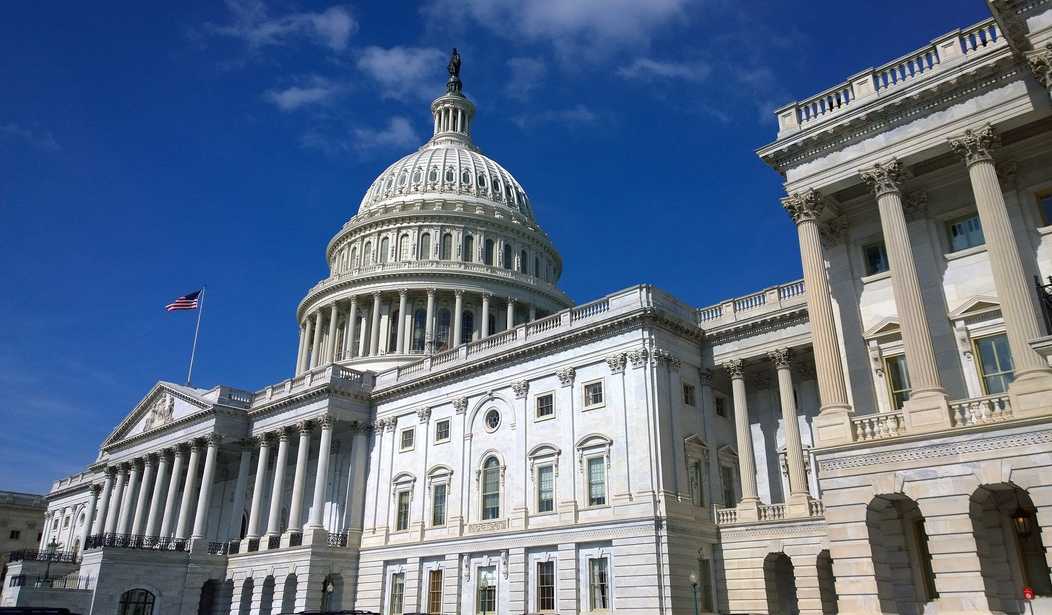Year’s end unfailingly spells legislative chaos in Congress. Mad season. 2021 is no exception, what with continuing resolutions, another hike in the debt limit, a trillion-dollar “infrastructure” bill that apparently has some sort of allotment for actual infrastructure projects in it, the annual National Defense Authorization Act (NDAA), tax extenders, and a reconciliation package that will exceed an additional trillion in new spending. Some of these different bills may be lumped together into omnibus packages. This will provide an opportunity for lobbyists to load up these bills with Christmas gifts for clients and special interests. With thousands and thousands of pages of legislation thrown together in last-minute haste, tucking pet projects into these giant bills gets pretty easy, and very crazy.
Advertisement
A good example is the NDAA debate. Preceding the debate in the House on floor consideration of the NDAA, the House Rules Committee gave a green light to full House consideration of 476 amendments to the bill, including an amendment on 5G network standards; student loans encryption technologies; the SAFE Banking Act, which allows state-legal cannabis businesses to access banking services (which I am all for, by the way, but not in a defense bill); and something relating to notaries using online resources. And this is just the beginning, with more to come soon via a closed-door House and Senate conference committee session.
The NDAA is not the only magnet for special interest provisions. A massive end-of-year appropriations measure will carry many pieces of legislation added behind closed doors. The “Build Back Better” reconciliation measure—basically a giant bouillabaisse of Biden Administration gifts to their political base–is likely to include upwards of a trillion in new spending after special interest handouts are loaded into the final package. The bills, taken together, end up being so large that representatives and senators will swallow special interest provisions voting on headline takeaways that most Americans will buy into (see above re: “Infrastructure” and “Defense Authorization”).
Advertisement
Both the right and the left claim to worry about the outsized influence of special interests on the crafting of legislation. It’s a tale as old as time. The left-leaning Center for American Progress wrote on September 27, 2017, “Americans know that wealthy special interests have far too much power over policymakers, blocking people from receiving fair representation and responsive, accountable governance.” The right-leaning Heritage Foundation argued that the “Tax Extenders” bill that will likely come up later this year is “bad policy and “grant economic privileges to well-connected industries and allow the government to pick winners and losers in the market.” Because these bills are so large, the lobbying class in Washington will use them as vehicles for other pork that they haven’t been able to pass without having to hide it.
There are far more examples of this nonsense than I have space to get into, but I have a great one with which I have a particular personal beef, and that is rumored attempts by lobbyists to pull a fast one that would impact the sale and accessibility of contact lenses. Back in 2003, Congress passed the Fairness to Contact Lens Consumers Act (FCLCA) to protect the 45 million consumers of these lenses against price-gouging and lack of accessibility—a necessary and patient-friendly move to regulate a government-created monopoly. Optometrists have a monopoly on issuing prescriptions by virtue of the fact they have been granted the power by states on whether to issue prescriptions pursuant to a diagnosis leading to a lack of competition. Congress passed the FCLCA to force optometrists to automatically release prescriptions to patients so they could shop outside of the optometrist’s office if they so desired.
Advertisement
Currently, special interest groups representing the optometrists are pushing a version of the “Contact Lens Prescription Verification Modernization Act,” a bill that is intended to take away the Federal Trade Commission’s ability to protect consumer choice in the purchase of contact lenses. Patients are raising concerns that the lobby representing optometrists is out to sneak this legislation into one of the aforementioned must-pass bills. This is just one example of hundreds, if not thousands.
Congress could easily put an end to this stuff but it’s not going to happen organically. Ever. Year after year they turn a blind eye, knowing we’ll complain a bit but get over it. We consistently dislike them and wring hands over the state of the legislative branch–but we get nowhere with that, do we? As long as the American people fail to demand significant congressional reforms (things like term limits, lobbying bans with actual teeth, and so forth), the blame lies with us.
In the meantime, we can only hope some of the few good actors in Congress will push back this year against at least some of the more insane Christmas gifts that are about to be snuck into bills where they don’t belong.
Related: $28 Trillion and Rising Fast










Join the conversation as a VIP Member